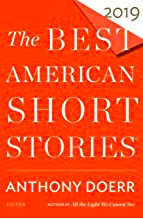The Reading Room is a personal log of stories I’ve enjoyed, read through the eyes of a writer. Find more
This story plays really nicely into the idea of the Locked Room Mystery, only it’s an escape pod on a space station, and not just any space station but a cloistered world of intellectuals who have chosen a life of focus, mostly-ignoring the outside concerns of the universe.
The opening line is a doozy:
“When we opened the escape pod, the person inside it was dead.”
The mystery in the story is a classic ‘locked room’ mystery: a seemingly impossible to explain murder, and the solution is excellently suited to the setting of the story. (Well done, that author!).
I think mysteries work best when they misdirect and distract us with a compelling human story and this one certainly does that. We have a cloistered order of intellectuals to explore, one that is suddenly confronted with an outsider, and a dead one at that, AND we have a bit of a family story as the protagonist’s teenaged daughter enters the tale (with all the usual parental issues that come along with living through your child’s teenage years: communication missteps, a growing sense of separation, an acknowledgement that time with them is finite).
This story reminded me of the best of classic sci-fi: Asimov with a bit more character development, Clarke with a bit less tech, Heinlein without the weird sex stuff.
As a mystery AND Sci-fi fan I really enjoyed this brief visit to the words of Malka Older, and look forward to the novel. “The Mimicking of Known Successes” (Tor, 2023)
Said author Malka Older:
“Living through the past
Tor.comyeartwo yearsfive years, I’ve thought a lot about the power of comfort reading, and so I packed this book with elements that bring me joy: a slow-building romance; an atmospherically Holmesian mystery; a storied academic idyll (constructed from reclaimed satellites); long train rides across the bleak landscape of a giant gas planet, and tea in front of the fire on stormy nights. At the same time, I also found myself needing to write about ecosystem loss and communities in conflict between returning to what was normal in the past and forging a new future. It’s the banter-filled, yearning comfort read I needed in my life, and I’m so happy to send it out into the world.”
Find this story in the Sunday Morning Transport newsletter

![[Reading Room] The Locked Pod by Malka Older](https://storyaday.org/wp-content/uploads/2022/09/1660D423-AC02-4C83-A14B-BC1BC2E791E9-1200x624.jpeg)
![[Reading Room] Cosmogramma by Courttia Newland](https://storyaday.org/wp-content/uploads/2022/02/Reading-Room-Newland-1200x675.png)

